Η γένεσις της δημοκρατίας στην αρχαία Αθήνα
Ενότητα:
Άρθρα του περιοδικού "Φιλοσοφία"
Χρονολογία έκδοσης περιοδικού
2003
Περισσότερα...
Τύπος
Επετηρίδα
Συγγραφέας
Σαρηβαλάση - Τσαγγάρη , Ουρανία
Περισσότερα...
Τίτλος άρθρου/ανακοίνωσης
Η γένεσις της δημοκρατίας στην αρχαία Αθήνα
Γλώσσα: Ελληνικά, Νέα (1453-)
Θεματική ενότητα άρθρου/ανακοίνωσης
Ιστορία της Φιλοσοφίας
Πολιτική Φιλοσοφία
Γλώσσα άρθρου
Ελληνικά - Νέα (1453-)
Αγγλικά
Περίληψη άρθρου
Based on the belief that all men are equal before law and by praising the uniqueness and freedom of human spirit, the Athenians gradually developed the ideal Democracy. The source of inspiration was King Theseus who, in the 13th century B.C. incorporated all towns and communities of Attica into one big state thus creating the first State in human history. He created the first «Agora», the Parliament of Areos Pagos and the Assembly of the Commons. The citizens, depending on their lineage, were classified in fraternities and fanctions. Eusebius provides us with information about the political evolution in Athens; His chronicles provides us with lists of: a) 17 hereditary Kings until the 11th century B.C. b) 13 life archons up to the year 776 B.C. The nobles became very powerful and they owned common property, c) 7 elected officials (archons) who served for 10 years. From 681 B.C. and onward prevailed the «co-reign» of 9 aristocrats: A President of the Republic, a King-High Priest, a war Archon and 6 legislators. Nobility was the first class, the second class comprised the land owners, and the third class comprised the craftsmen. Up to the middle of the 8th century there was a «cottage industry» and workshops. After that, Athenians finally created the civilized urban society, the powerful citizens who demand new laws and representation in the government. Draco, also a legislator establishes new Court Houses. He grants civil rights to the third class and the soldiers. In the year 594 Solon is elected archon-arbitrator with unlimited power. He establishes the ruling of the state acording to the income of citizens. He abolished the right to lend money on personal bondage, he legislates the canceling of debts, and he puts a maximum limit of property. Social classes were organized in parties with local characteristics. In 546 B.C. Peisistratos re-allots the communal land, collects literature, introduces Dionysos worship, builds temples, fountains and Propylea. Kleisthenis revolution is the beginning of Athens democracy. During 508-7 B.C. he creates 100 municipalities, 10 tribes, 30 «trities», a parliament of 500 members, organizes ten assizes and establishes the «ostrakismos» in Ionians. After the Persian wars, Themistocles adopts the navy power policy and builds the three Pireus seaports. The ten generals elected by the city assembly, have military, political, economical and administrative authorities under the supervision of the ranking general; this is democracy. Themistocles establishes the Athenian alliance in 478 B.C. With Pericles «Golden Age» starts for Athens in politics and culture. Pericles was a gentle-natured, sober, god-fearing, philosopher politician. Ploughmen and Rowers get full citizen΄s rights. He legislates free entrance to the theatres for the poor, daily allowances for the soldiers, the judges, the deputies and the citizens, who take part in the «Ecclesia». The citizens vote for the election of the Generals, for the rulers, for laws, for taxes, for war and peace. Athens Ecclesia is the forerunner of the United Nations declaration.
Λέξεις -κλειδιά
Δημοκρατία
Γένεση
Creative Commons
Αναφορά Δημιουργού - Μη Εμπορική Χρήση - Παρόμοια Διανομή 4.0 Διεθνές - CC BY-NC-SA

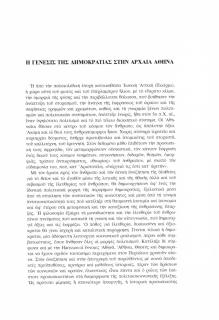
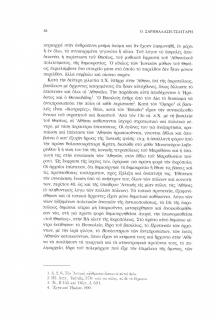
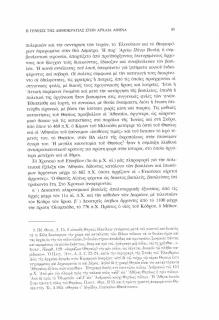
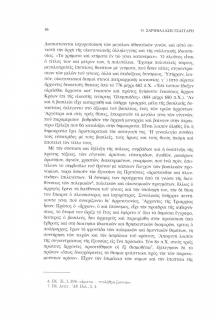
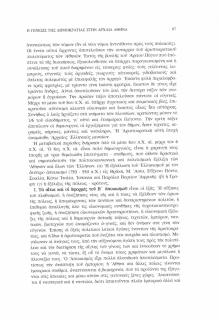
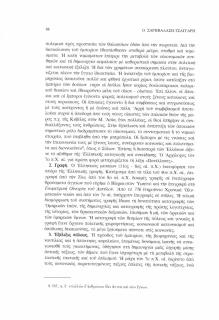
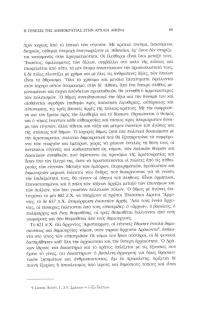
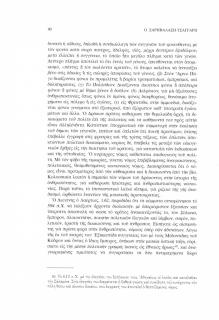
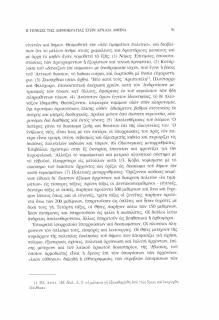
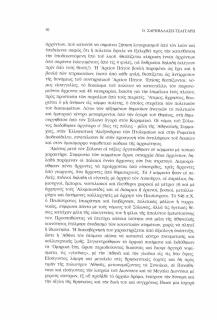
 Voir le fichier PDF
Voir le fichier PDF